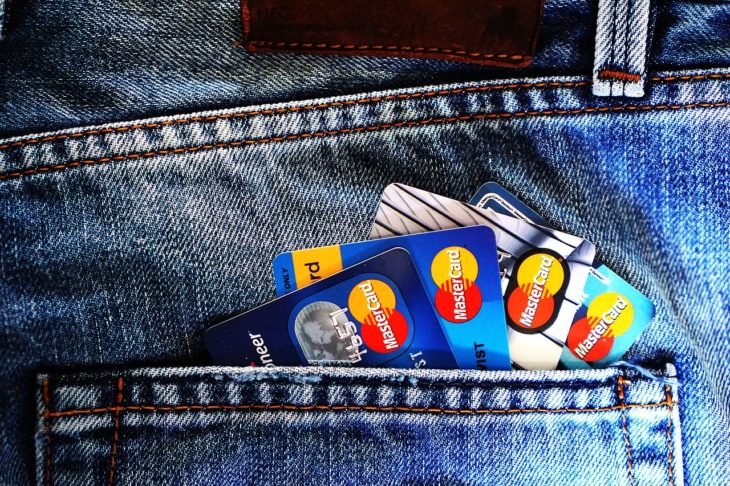There are always going to be things we want to buy but can’t afford. That’s just how life is. However, in the case of buying things you can’t afford but need or desperately want, there are more options at your disposal than merely saying no, I can’t have that. It’s time to bring in a little money magic. Here are five ways you can buy something that you can’t finance immediately.
Cash Loans

Source: nextviewloans
Bills can pile up. The kids need new school shoes, the car has broken down, and the fridge has given its final salute. A cash loan from a loan shark can seem like the only option, but did you know there are alternatives to payday loans such as Speckle Loans and other not for profit microfinance lenders out there?
Rather than deal with a shady lender offering high-interest rates and unaffordable lending criteria, you can deal with someone you trust. The payday loan industry is designed to trap you in a cycle of debt that can keep you at the mercy of the lender. Sometimes it can take years to dig yourself out of the financial hole you’ve created for you, and you can end up paying off many times more than the original amount you borrowed.
Believe it or not, there are lenders online who are more than happy to offer a quick cash loan with transparent terms and payments you can afford. Speckle Loans is just one example of a Not For Profit lender that empowers people to take control of their finances, rather than profiting from their misfortune.
Good Old-Fashioned Saving

Source: fox
If you want a tried and true method for buying something you can’t afford, then that would be saving. Most people are aware of the 10% saving rule, which involves saving at least 10% of your retirement income.
You can either add to that 10% to get the item you want or dip into the funds you’ve already accumulated. The beauty of saving is that you can get what you want without having to pay interest to someone else.
Of course, that leads us to the question of how much to save? Most experts agree that saving enough to cover 3 month’s worth of your basic expenses such as rent or mortgage, utilities, food, and other outgoings is a great goal to work towards. Remember, this is a journey. It may take some time to achieve that initial goal but stay focused and disciplined.
There are many strategies that you can implement to help you save, so choose those that work for you and watch your nest egg build.
Credit Cards

Source: pixabay
Millions of Americans have credit cards for emergencies, and there’s nothing wrong with that. They can help you out of some sticky situations, and they often come with cashback deals, reasonable interest rates, and other desirable perks.
In saying that, credit cards should never be anyone’s first choice to buy anything, they can’t afford. They are an ideal lifesaver, but anyone contemplating using a credit card should factor in their likelihood of managing regular monthly payments.
The best strategy with credit cards is to limit your balances to what you can afford and try to pay off all or most every month. This will minimize the amount that you’re flittering away on credit charges. The worst thing you can do is only pay off the minimum each month. Doing this will keep you in debt for the long haul and cost you far more over time. If that sounds like you, you were then cutting up your cards is the best policy. If that’s not feasible, then try sitting down with a financial advisor that can give you tips on how to get out of debt once and for all.
Friends and Family

Source: albawaba
Life has a habit of throwing curveballs our way. Things like costly appliance repairs and unexpected home maintenance can rear their ugly heads at the worst possible times. Sometimes, the money isn’t readily available to take care of them, either.
Borrowing from friends and family can be a way in which to buy something you can’t afford at this very moment. However, you need to tread very carefully here. Money is one of the most common causes of fallouts between family or friends, so it’s essential to be smart about it. Have a written agreement that outlines how much you’re borrowing, the timeframe for paying it back, and any interest to be paid.
The keywords here are transparency, honesty, and openness. Money can bring out the worst in people. What starts as someone trying to help you with the best of intentions can descend to relationship disaster if you’re not completely upfront.
Bartering & Trading

Source: thebalance
Money doesn’t always need to change hands to get something you can’t afford at this point. If you have a skill that someone wants and need a skill that someone else has, then let the two come together naturally.
For example, let’s say you had an abundance of vegetables in your garden, but no protein to accompany them. Your neighbor often went out hunting and had plenty of meat, but no vegetables. A direct trade would offer you both what you desire without the need for money to change hands.
As with everything these days, the internet can be your best friend here. Whether it’s a Facebook giveaway or swap groups, Craigslist, WhatsApp groups, or any other forum, you multiply your chances of getting the best deal by widening your reach online.
Money doesn’t grow on trees, and that’s unfortunate for anyone who needs a bit more of it! In saying that, there are still ways, you can buy something when money is tight. Consider a cash loan, ask friends and family, or use a credit card as a last resort. You can then be back on your feet before you know it.
